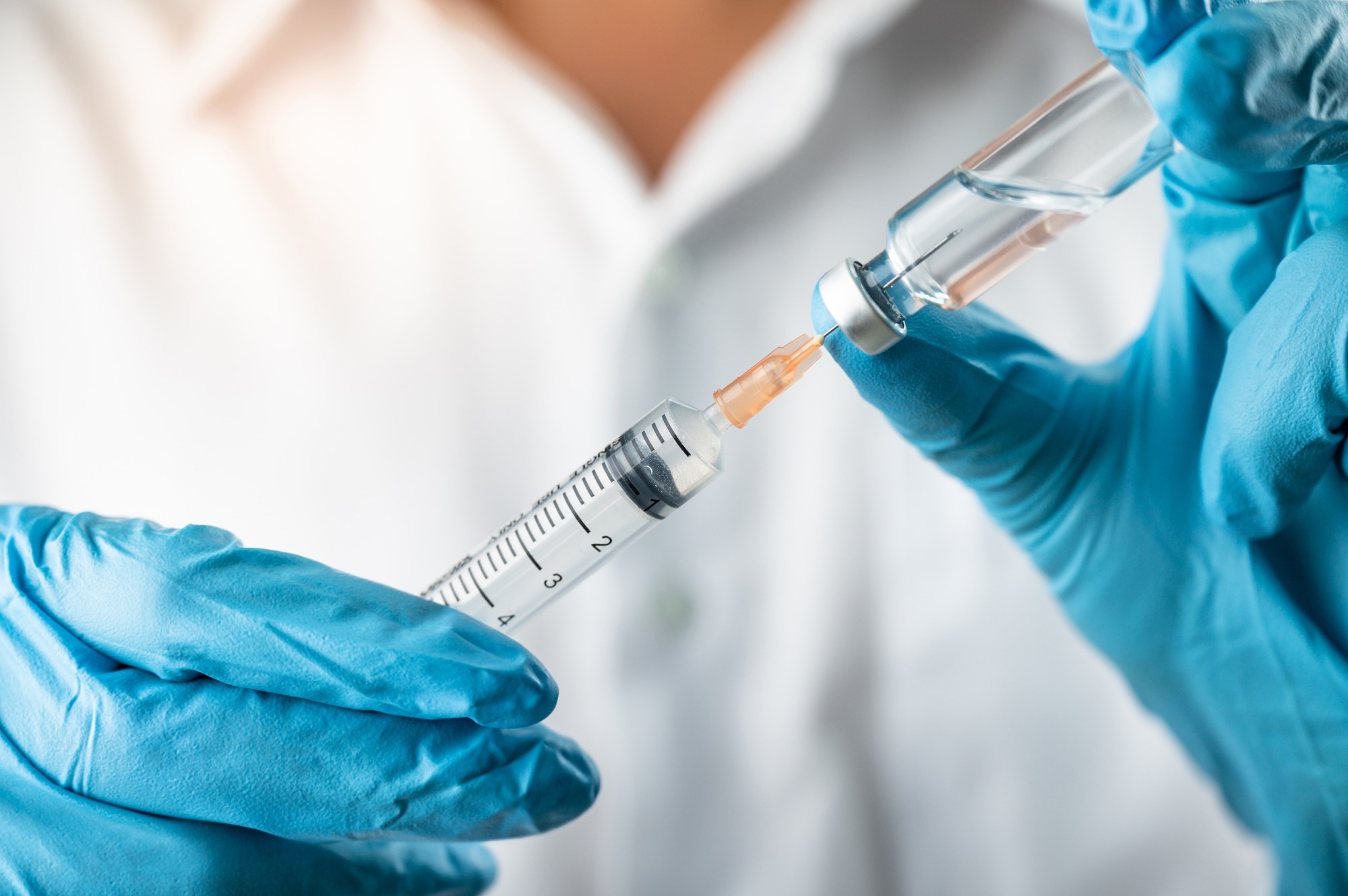They found that the vaccine was viable and led to limited toxicity and systemic T-cell responses, with 50% of patients experiencing disease recurrence during the study.
 Study: Neoantigen-targeted dendritic cell vaccination in lung cancer patients induces long-lived T cells exhibiting the full differentiation spectrum. Image Credit: PhotobyTawat/Shutterstock.com
Study: Neoantigen-targeted dendritic cell vaccination in lung cancer patients induces long-lived T cells exhibiting the full differentiation spectrum. Image Credit: PhotobyTawat/Shutterstock.com
Background
NSCLC, constituting over 80% of lung cancer cases, is primarily treated with surgical resection in early stages, yet recurrence rates remain high, with highly variable 5-year survival rates.
Adjuvant chemotherapy offers modest survival benefits and often impacts the quality of life severely, emphasizing the need for more efficacious and tolerable adjuvant therapies. Recent phase 3 trials showed that immune checkpoint blockers (ICBs) benefit high-risk early-stage NSCLC, improving disease-free survival, but concerns exist over their toxicity.
Neoantigen-targeting vaccines are extensively researched across different cancer stages, showing promising outcomes by inducing robust, high-affinity T-cell responses. Trials confirm their feasibility, safety, and potential clinical benefits, alone or combined with ICBs.
DCs are highly efficient antigen-presenting cells, widely studied for cancer vaccination. However, their clinical efficacy is limited, partially due to their emphasis on tumor-associated antigens instead of mutanome-derived neoantigens.
Therefore, in the present study, researchers investigated the safety and efficacy of an autologous DC vaccine targeting neoantigens for the treatment of resected NSCLC patients.
About the study
The study recruited ten resectable NSCLC patients without specific gene mutations in stages Ia3–IVb. Tumor material and peripheral blood samples were collected for whole-exome sequencing (WES) and ribonucleic acid (RNA) sequencing.
A neoantigen identification pipeline was developed, prioritizing clonal variants with strong predicted binding to human leukocyte antigen (HLA) class I allotypes and RNA expression.
Neoepitopes were selected based on their absence from the healthy human proteome and immunogenic potential. Mass spectrometry (MS)--based immuno-peptidomics, cell line engineering, and tumor-infiltrating lymphocyte (TIL) reactivity analyses were employed for neoantigen validation.
Six patients received intravenous administrations of messenger RNA (mRNA)-loaded monocyte-derived DCs (Neo-mDCs) and were monitored for safety and clinical activity. The median time from surgery to the first vaccination was 198 days.
Peripheral blood mononuclear cells (PBMCs) from patients receiving Neo-mDC treatment were analyzed for CD4+ and CD8+ T-cell responses against neoantigen 25-mers using interferon-gamma (IFN-γ) staining after in vitro stimulation.
The correlation between T-cell responses and the detection of tandem protein in Neo-mDC batches was assessed. PBMCs were also analyzed to assess ex vivo T-cell frequency and differentiation phenotype.
Individual clonotypes within neoantigen-specific T-cell populations were examined through single-cell analysis of the T-cell receptor (TCR) repertoire in tetramer-positive cells.
Results and discussion
Seven out of nine patients had five to six neoantigens selected for vaccination, with 0–56 potential neoepitopes identified per patient. Validation analyses confirmed that nine out of 33 selected neoantigens were naturally processed and presented on tumor HLA, supporting the reliability of the identification approach.
Adverse events (AEs) were mild and self-limiting, with no grade 3–4 AEs reported. While three patients experienced disease recurrence, three patients remained free of disease recurrence during the follow-up period.
Five out of six treated patients exhibited vaccine-induced T-cell responses, with 14 out of 33 neoantigens-inducing responses. Most responses were CD8+ T-cell-mediated and emerged after the first dose, persisting throughout treatment.
Even at low doses, Neo-mDCs primed naive T-cells and/or expanded pre-existing T-cell responses.
However, T-cell responses did not always correlate with detecting tandem protein in Neo-mDC batches. CD8+ T cell responses were highly specific for predicted neoepitopes, with no cross-reactivity observed toward wild-type epitopes. These results highlight the immunogenic potential of Neo-mDC vaccination in NSCLC patients.
Post-vaccination, tetramer-positive T-cells expanded and were found to persist for ≥1.5 years. Analysis revealed naive, early, and late differentiated T-cell clusters with tetramer-positive cells across these states.
These findings demonstrate the induction of diverse, long-lived neoantigen-specific T-cell responses by Neo-mDC vaccination in NSCLC patients.
Further, the T-cells induced by vaccination included effector and long-lasting cells that could persist for several years. The T-cell populations generated by the vaccine were diverse and polyclonal, consisting of multiple clonotypes that exhibited a wide range of differentiation states.
Overall, this first-in-human clinical trial provides valuable insights on using an autologous DC therapy delivering mRNA-encoded, patient-specific tumor neoantigens in NSCLC patients. However, it is limited by its small patient cohort and prolonged vaccine manufacturing time.
Conclusion
In conclusion, the study demonstrated neoantigen-targeted autologous DC vaccination's safety, feasibility, and immunogenicity in surgically resected NSCLC patients.
The findings highlight the potential of personalized immunotherapy strategies in combating NSCLC and possibly other malignancies to improve patient outcomes.